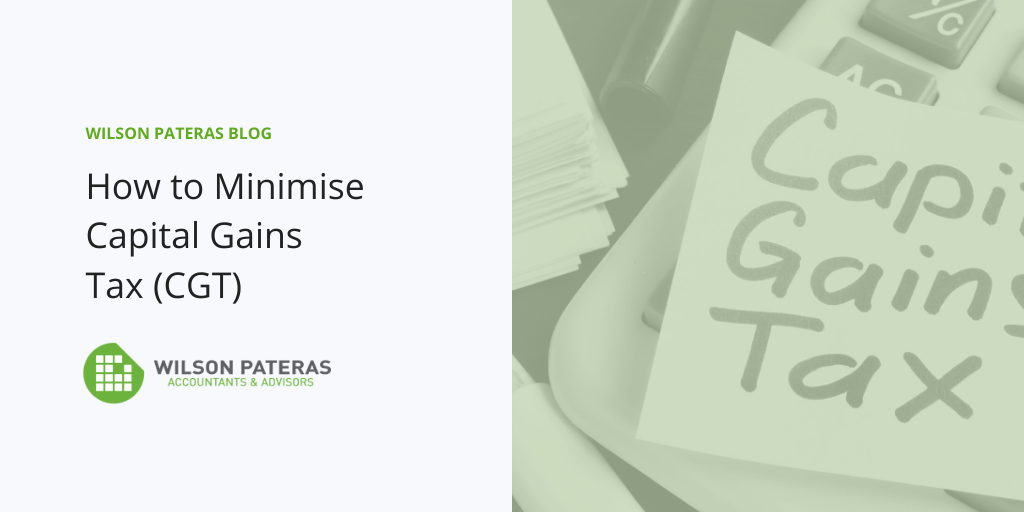
Capital Gains Tax (CGT) is a tax you pay on the sale of non-exempt assets in Australia that were acquired after the 20 September, 1985. Your capital gain is the difference between the selling price and your cost base. Here are some ways to minimise Capital Gains Tax (CGT).
What asset sales are subject to CGT?
Assets that are subject to CGT include:
- investment properties
- shares
- cryptocurrency
- business vehicles
- business/office equipment, and
- commercial properties.
What assets are CGT-exempt?
CGT-exempt assets include:
- any assets that were acquired before 20 September, 1985
- your main residence
- personal vehicles, and
- depreciating assets in an investment property.
What is the CGT rate?
There is no set rate of CGT in Australia for individuals. Instead, you pay CGT at your marginal rate of tax if you need to pay it.
Trading companies on the other hand pay a flat rate of CGT (26% if their annual turnover is less than $50 million and 30% if it exceeds $50 million), while self-managed super funds (SMSFs) are taxed at 15%. Investment companies, not eligible for the 26% rate, are taxed at 30%.
Six ways to minimise your Capital Gains Tax (CGT)
You can minimise the CGT you pay by:
1. Holding onto an asset for more than 12 months if you are an individual.
If you do, you are entitled to a 50% discount on your CGT. For example, if you sell shares that you have held for longer than 12 months and you make a capital gain of $3,000, you will only be charged CGT on $1,500 (not the $3,000 gain that you actually made).
SMSFs are entitled to a 33.3% discount on the sale of assets held for more than 12 months (which effectively means that capital gains are taxed at 10%).
Companies are not entitled to any CGT discount on assets held for more than 12 months and must pay their full 26% or 30% rate on the gain.
2. Offsetting your capital gain with capital losses.
Capital gains from current or prior years can be used to reduce a capital gain and therefore the amount of CGT you need to pay.
3. Revaluing a residential property before you rent it out
If you decide to turn your residential property into an investment property, get it valued before you rent it out. You’ll only be liable for CGT on the capital gain you make from that point forward, not on the gain from when you first bought the property.
4. Taking advantage of small business CGT concessions
If you run a small business and you sell a business asset, there are a range of small business CGT exemptions and concessions available if you meet the eligibility criteria.
5. Increasing your asset cost base
Reducing your cost base reduces your capital gain and therefore your CGT obligation. You are entitled to include not only the purchase cost of the asset in your cost base, but also the any associated costs of acquiring and disposing of it (such as real estate agent fees), and any holding costs (such as rates, repairs and insurance premiums).
6. Talking to a tax professional
Tax law in Australian (including CGT) are complex. It is important to understand that tax minimisation is a legal and sensible financial strategy. Tax avoidance on the other hand is not and can carry heavy penalties.
Speak to a tax professional so you can legally minimise your CGT obligation.



